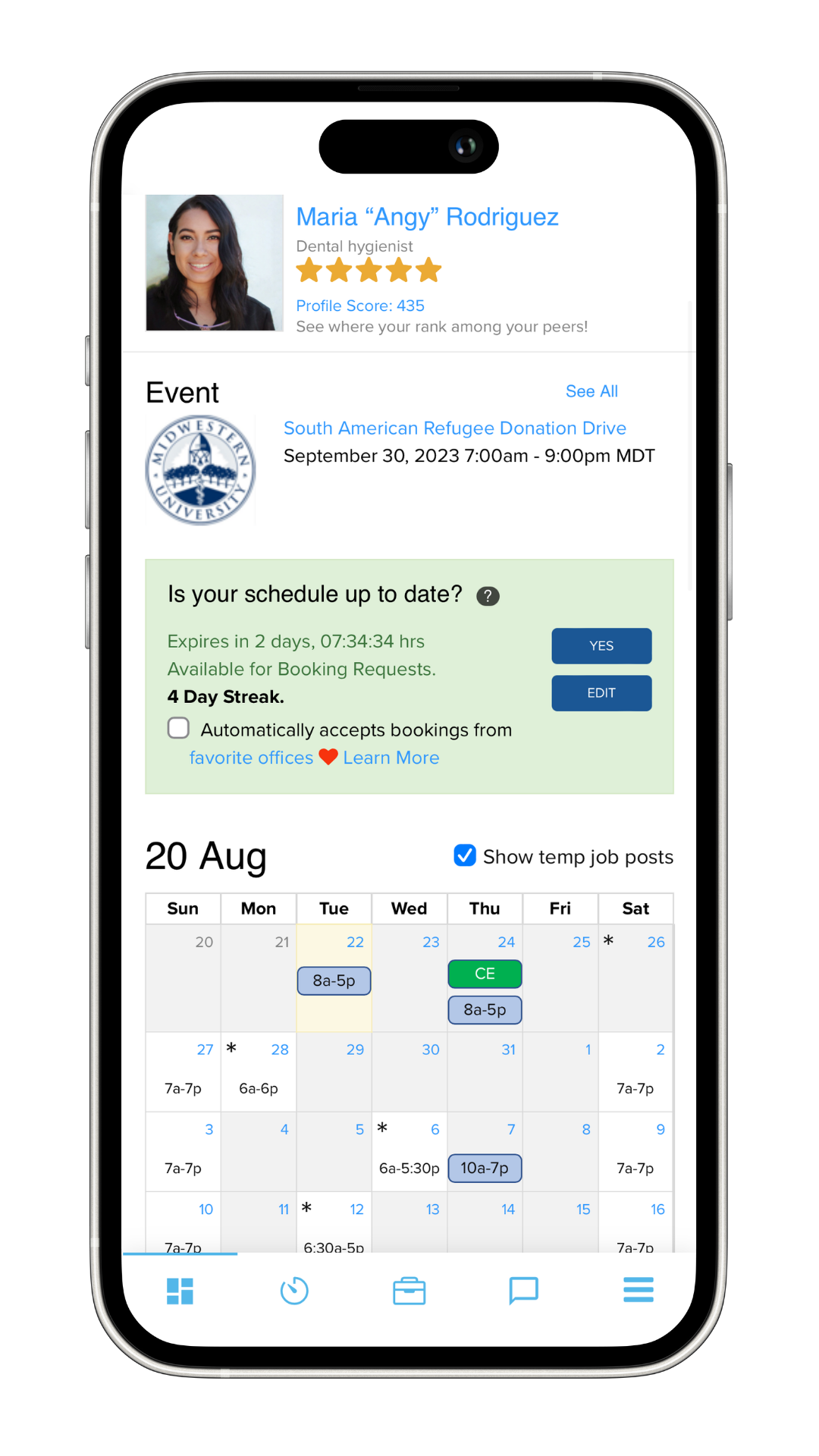Take Control of Your Dental Career
Join the largest dental professional marketplace for free.
Designed for RDHs, DAs, Front Office Staff, Dentists, and Specialists.
Benefits of Your Free Cloud Dentistry Account:
- Earn up to 30% more as a dental professional by setting your own rate
- Set your schedule, rate and radius and update 24/7
- Instantly connect with offices looking to hire - 27k dental offices and growing daily
- Search for temp, part-time, or permanent positions in your area
- Read reviews of offices from verified dental professionals before accepting a booking
- Instant payout available
- 10,000 temp bookings completed a month
- <10 minutes for confirmed booking
- Free accredited CE courses offered monthly
- Keep 100% what you earn - no recruiter or placement fees ever.

- Create a profile.

- Set your availability.

- Show up in search results.

- Get booking requests.

- Go to work. Get paid.

Join a trusted community of in-demand professionals
